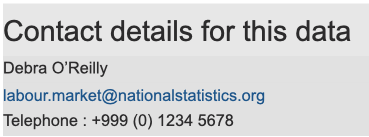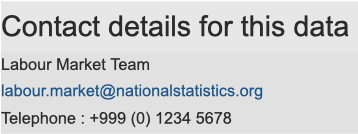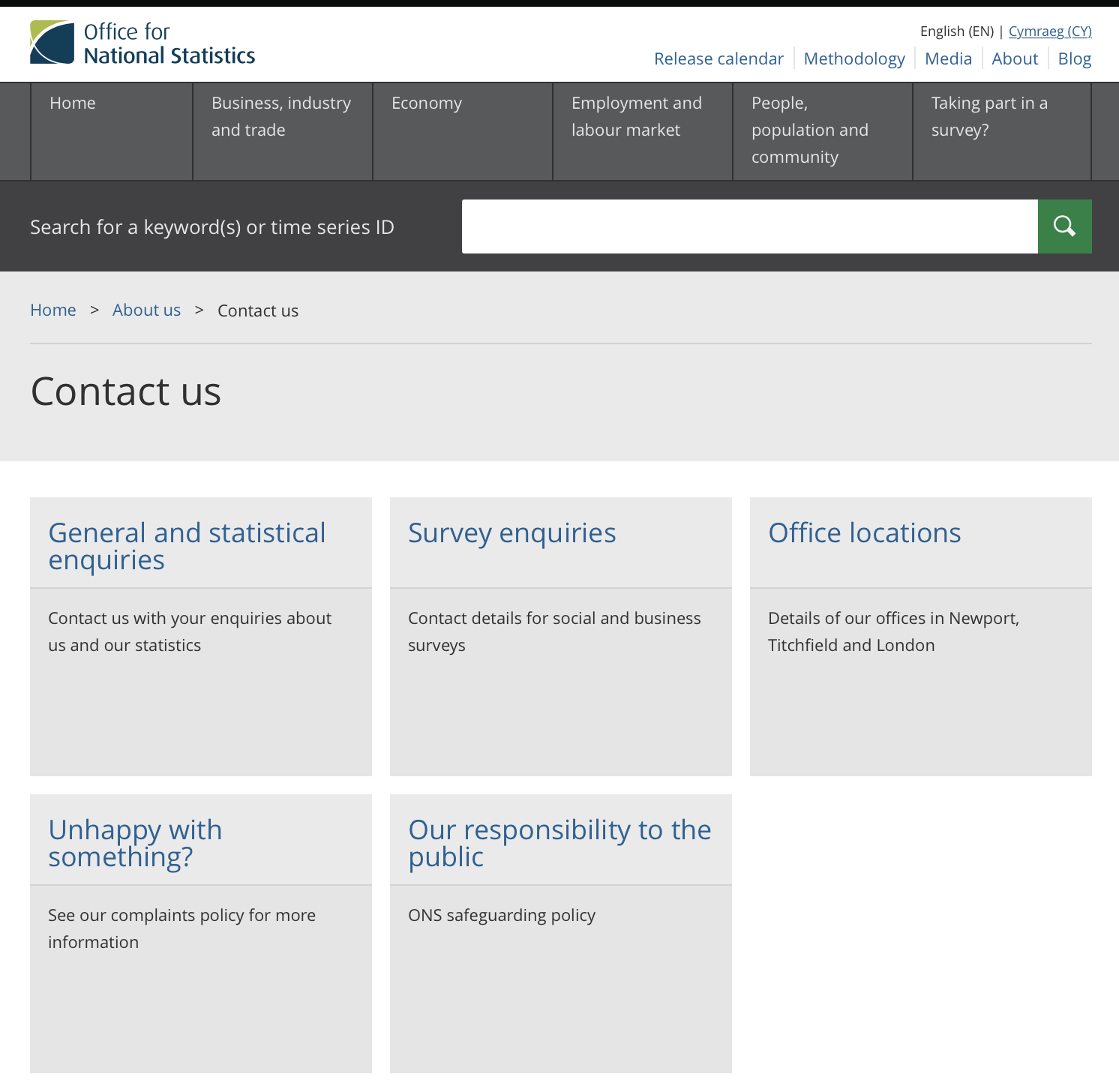Contacts
This is information presented along with a dataset which tells data users, if they have further questions, who to contact and how to contact them.
Why is this needed?
When fact checkers check a claim against data on an NSI website, they want to make sure they understand the data correctly. If they don’t understand something in the data, they may contact the NSI for more information.
Fact checkers said they contact NSIs about data for a number of reasons:
- To understand something about certain datasets
- To ask for extra analysis which they may not have the time or skills to do
- To enquire if certain datasets exist
Types of contact details
NSIs should clearly direct data users to where they will handle questions about the data they publish. Should people phone general enquiries or email a specific person? Can they use social media? Good directions should save hassle for both the NSI and the person enquiring.
Fact checkers said phone calls were their preferred method for contact. They often need to ask a number of specific questions, and phone calls are easy to do this. Also, the response time can be much quicker, which is important when covering topical news items.
They did say email was fine in some circumstances, but that was if someone responded. Fact checkers said they sometimes get no response from an email to an NSI, which they found frustrating.
Reliable information
Contact details are only as good as the response that comes from them. Each contact channel needs people who are there to respond. Contact channels each have their own questions when setting them up. For example:
- Phone
- Are there office hours?
- Can they leave a message?
- Are there different phone numbers for different teams?
- Email
- Is it a general enquiries address?
- Can the email individuals in the NSI?
- What will the response time be?
- Social media
- Is this for promoting work or can people ask questions?
Who to contact
For questions about data, NSIs can also offer specific teams or people to contact. This saves fact checkers time by going directly to the people they need.
There are different levels in an NSI organisation that could have contact details
- Organisational: general contact for the NSI – e.g. info@nationalstatistics.org
- Team: details for a team who focus on this area – health@nationalstatistics.org
- Personal: details for a specific person – joyodiwani@nationalstatistics.org
Each dataset can have specific people or teams as the designated contact person.
These two examples show the difference.

This example shows a specific person to ask for, and lets you know what department they’re in. However, this means if this person leaves or is reassigned, the contact also needs to be updated.

This shows you can contact the team. Ideally the team will then figure out who is the best person to respond.
Relationships
Good contact between fact checkers and NSIs can help build trust and relationships. Fact checkers often said how great it was if they had a reliable person in an NSI who was always happy to answer questions about data.
NSIs can also think beyond direct emails and phone calls. They could offer workshops or feedback sessions from fact checkers and other users of the statistical data. Understanding what they want to see changed or improved with the data publishing. Getting to phone their data users and how they work.
As avid users of NSI data, fact checkers could be seen as a valuable resource to show the importance of well-maintained national statistical data. The more fact checkers can rely on NSIs to help with questions about data, the more impact they’ll have in fighting harmful information. And the more impact the NSI will have on society.
